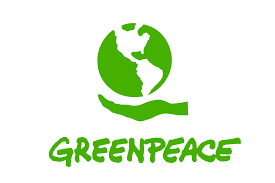
- This project has passed.
A Global Green New Deal
YSI Workshop @ Greenpeace
Start time:
April 13, 2020 @ 1:00 pm - 1:06 pm
EDT
Location:
Greenpeace, Washington, District of Columbia, 20001
Type:
Workshop

Speakers

Gabriel Porcile
Senior Economist of Comisión Económica para América Latina y el Carible (CEPAL)

Laura de Carvalho
Professor of Economics of University of São Paulo

Geoff Mann
Director of the Centre for Global Political Econom
Local Partners
Description
This workshop will include lectures by and discussion with senior level experts in the field.
Overview
The average global temperature keeps rising. And carbon pollution is just one element of a general environmental crisis which also includes pollution of water, ocean plastic contamination, soil exhaustion and much more. The environmental emergency is now an undeniable reality!
In order to tackle this crisis, we need to transition to a greener global economy with new patterns of investment, consumption, taxes and regulation. And we need to coordinate this transition in a highly polarized world, in which there is a gap between countries with large greenhouse gas (GHG) emissions and the countries that will suffer the brunt of these consequences. To complicate matters, a simple stylized dichotomy between the rich and the poor worlds does not hold up – there are middle-income countries (for example, oil producers) with per capita emissions equal to or greater than those of the OECD. Given this complex situation, each region of the world has proposed its own version of a Green New Deal.
The idea of a Green New Deal for the Global South suggests that fighting climate change through development policies based on green investments could be an engine to growth in countries of the Global South. Such a plan could include public green investments, R&D for sustainable technologies, green bonds, carbon taxes, and other instruments to foster the transition to a low-carbon and climate-resilient development.
We cannot forget that the ecological crisis is also a social crisis, since environmental deterioration impacts those who are already socially vulnerable more severely both globally and locally. It impacts the economy by affecting production in the agriculture sector, reducing the availability of resources for industry and because of the enormous costs of disasters, such as the wildfires in Australia or collapse of the Brumadinho Dam in Brazil.
How to Attend
Anyone with an interest in the topic is encouraged to apply. Workshop participants are also invited to the INET Conference that will follow on 14-15 April, ahead of the IMF and World Bank Meetings on 16-18 April. Interested participants residing outside the DC area may apply for partial travel support and/or accommodation. In your application, please attach your CV and motivation, and elaborate on how your work and your interests align with the goals of the workshop, and the partner organization.
